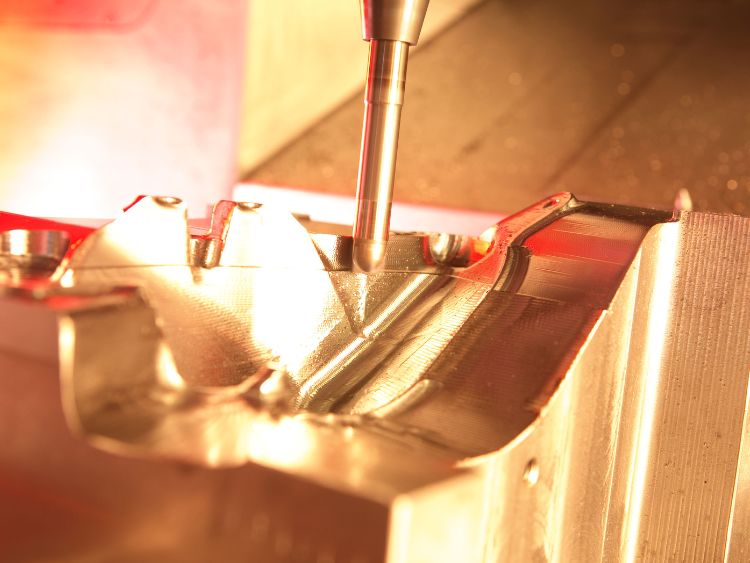The Art and Science of Mould Making
Mould-making for plastics combines precision engineering with quasi-artistic intuition. It is a complex process that requires specialised skills and in-depth knowledge of the materials, technologies and processes involved. This brief guide explores the essential steps and technical considerations that guide the construction of effective, high-quality moulds for the plastics industry.
Design: the vital first step
Mould design is the fundamental step that determines the effectiveness of the moulding process. The choice of mould design depends on the geometry of the desired end part, the properties of the plastic material and the technical production specifications. Considerations such as material flow, cooling and extraction of the finished part are crucial at this stage. Design is a critical process step that requires the use of advanced CAD/CAM software to create detailed and accurate three-dimensional models. During design, factors such as product geometry, tolerances, contact surfaces and filling paths are considered. Proper design is essential to ensure the quality and efficiency of the moulding process.
Material selection: a key decision
The choice of material for the mould is crucial to ensure its longevity and functionality. Materials such as hardened steels, special steels and specific high-strength alloys are ideal due to their resistance to wear and corrosion, especially for large series production or the manufacture of moulds for precision machining. The choice of material influences machining techniques, surface finishes, precision and lead times. The materials used in the construction of plastic moulds must essentially possess specific characteristics to ensure strength, durability and precision.
Mould construction: from theory to practice
Once the design has been completed and the material chosen, production goes through various stages. Mould construction for plastics is carried out through precision machining processes such as milling, turning, wire and die-sinking EDM, grinding and manual activities such as polishing, adjusting and assembly. These processes produce moulds with complex and detailed geometries, ensuring the precision required for the production of high-quality plastic components. The choice of machining processes depends on the characteristics of the final product and design requirements. Each step requires specific equipment and high technical skills to ensure the precision and suitability of the mould for the production of plastic components.
Quality control and testing: ensuring excellence
Before final approval, the mould must undergo stringent quality control and extensive testing to ensure proper functionality and precision. This ensures that the mould can produce components that conform to specifications, without defects. Tests include measurement of dimensions, verification of surface finish, evaluation of filling and draft performance, and simulation of the moulding process. Moulding tests are essential to assess the functionality of the mould, to identify and correct any defects or problems before mass production and to take any necessary countermeasures.
Maintenance and service: guarantee of durability
Maintenance and service of plastic moulds are crucial to ensure their durability and efficiency over time. Preventive maintenance, regular cleaning and replacement of wear parts are essential practices to preserve optimal mould performance. In the event of faults or problems, it is important to intervene promptly to minimise downtime and ensure production continuity.
Conclusion: building the future
Mould construction for plastics is an activity that requires profound technical knowledge and continuous innovation. Through correct design, material selection and processing, moulds become vital tools for the plastics industry, capable of transforming ideas into tangible, functional products. It is a complex process that requires specialised skills, attention to detail and the use of advanced technologies. Relying on experienced and qualified partners, such as C.A. Stampi, guarantees the production of high-precision and high-quality moulds, capable of satisfying the most complex needs of the industry.
